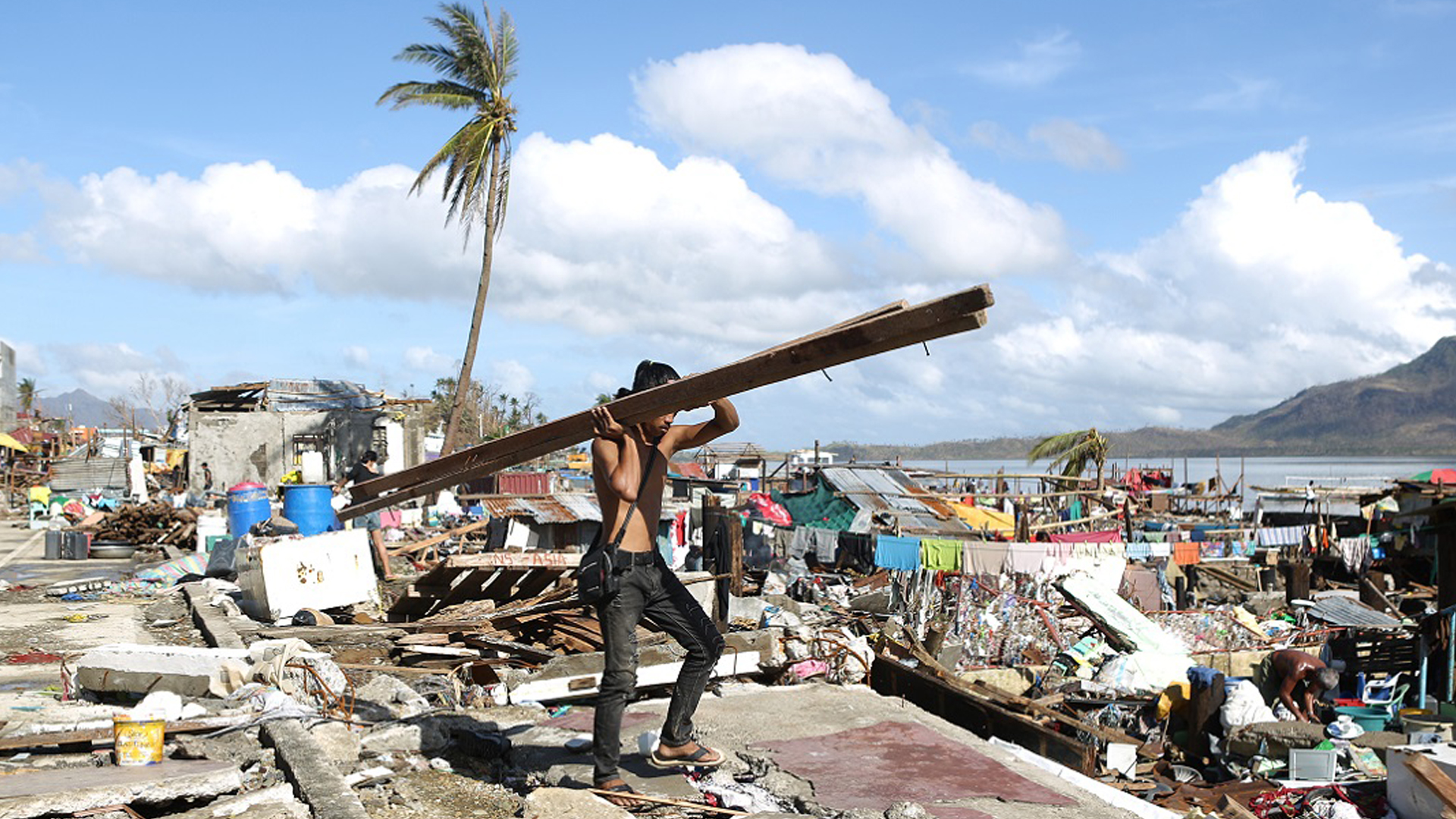
Manila, August 17, 2021— Leading developers are expected to pledge 1 million square meters of local building space for the construction or retrofitting of real estate projects that are more resilient to natural hazards, under a new initiative that will promote a greener, resilient and more inclusive Philippines and could revolutionize its property sector.
The International Finance Corporation (IFC), the largest global development institution focused on the private sector in emerging markets, has launched the Building Resilience Commitment campaign, a call to action to the Philippines' real estate sector to improve the resilience of buildings and cities. Early commitments from Imperial Homes Corporation, NEO, and SM Group have already fulfilled half of the target. The remaining commitments are expected to be pledged by the end of the year.
Planned and existing projects pledged as part of the campaign will be assessed for resilience using the Building Resilience Index, an online hazard mapping and resilience assessment tool currently under development by IFC. The Building Resilience Index evaluates location-specific, climate-related risks across water, wind, fire, and geoseismic hazard categories for real estate projects and portfolios and assesses the resilience measures that have been implemented. A roadmap to improve these projects' resilience will then be developed.
The Building Resilience Index is currently in the pilot phase and the Philippines was selected as the pilot country late last year. Developers including Imperial Homes, NEO, and SM agreed to participate in the pilot scheme, and they are currently using a beta version of the tool to help build resilience into eight projects spanning the residential, office, retail, educational, and hospitality sectors.
The Building Resilience Index was developed using seed funding from the government of the Netherlands and implemented in the Philippines with support from the government of Australia, in cooperation with ARISE Philippines, a private sector alliance for disaster-resilient societies led by the UN Office for Disaster Risk Reduction.
The Philippines has recorded the fourth-highest number of disaster events linked to natural hazards globally in the last 20 years, and is one of the world's most vulnerable countries to the impacts of climate change. Recent cyclones and the resulting floods – the worst the country has seen in almost half a century – have also exacerbated the crisis caused by the COVID-19 pandemic, resulting in significant damage to buildings, businesses, and livelihoods.
"The safety, habitability, and financial performance of buildings in the Philippines is being severely impacted by the increasing frequency and severity of climate-related events, causing significant setbacks in efforts to promote shared prosperity in the country and reversing development gains," said Ommid Saberi, Global Lead and Product Manager, Building Resilience Index at IFC. "We are excited to partner with leading developers, investors, and policymakers to help us advance one of the most critical agendas of our time."
"Some of the worst natural hazards on record have added fresh impetus for calls to accelerate efforts to transition to a greener, resilient, and more inclusive Philippines," said Jean-Marc Arbogast, Country Manager for the Philippines at IFC. "This is a huge opportunity for the real estate sector, whose efforts to build stronger and more sustainable buildings will not only save money in the long run, but also lives."
Signatories of the Building Resilience Commitment commit to three principal areas of action:
- For developers (public and private): By 2022, to assess the resilience of public/private buildings in a portfolio and develop a roadmap for implementation to improve their resilience rating using the Building Resilience Index.
- For investors (including banks): By 2022, to integrate disaster risk reduction, climate change adaptation, and resilience in real estate investment decisions using the Building Resilience Index.
- For policymakers (including local government units): By 2022, to formulate policies and develop a roadmap for implementation to reward improvements in building resilience above code compliance using the Building Resilience Index.
Since 1962, IFC has invested more than USD5.5 billion – of which over USD3.5 billion was invested from its own account – in around 160 projects in the Philippines. Strategic priorities in the country include reducing the impacts of climate change, deepening financial inclusion, promoting sustainable infrastructure, and strengthening the capacity of the private sector. This will better support the Philippines throughout the COVID-19 pandemic and help drive inclusive growth during the eventual recovery.
About IFC
IFC—a member of the World Bank Group—is the largest global development institution focused on the private sector in emerging markets. We work in more than 100 countries, using our capital, expertise, and influence to create markets and opportunities in developing countries. In fiscal year 2020, we invested $22 billion in private companies and financial institutions in developing countries, leveraging the power of the private sector to end extreme poverty and boost shared prosperity. For more information, visit www.ifc.org.
Stay Connected
www.ifc.org/eastasia
www.facebook.com/IFCeap
www.twitter.com/IFC_EAP
www.linkedin.com/showcase/ifc-asiapacific
www.youtube.com/IFCvideocasts
www.instagram.com/ifc_org
About Building Resilience Index
The Building Resilience Index, an innovation of IFC, is a web-based hazard mapping and resilience assessment framework that evaluates location-specific, climate-related risks for a real estate project or portfolio, and the resilience measures that have been implemented. The Building Resilience Index was developed using seed funding from the government of the Netherlands and implemented in the Philippines with support from the government of Australia, in cooperation with the ARISE Private Sector Alliance for Disaster Resilient Societies.
The first of its kind in the world, the Building Resilience Index makes it easy for various stakeholders, including developers, locators, homebuyers, financial institutions, investors, insurers, and governments to assess, improve, and disclose the resilience of buildings.
Contacts
Alec Macfarlane
+1 (202) 203 8324
amacfarlane@ifc.org
Stay Informed
Sign up to have customizable news & updates sent to you.